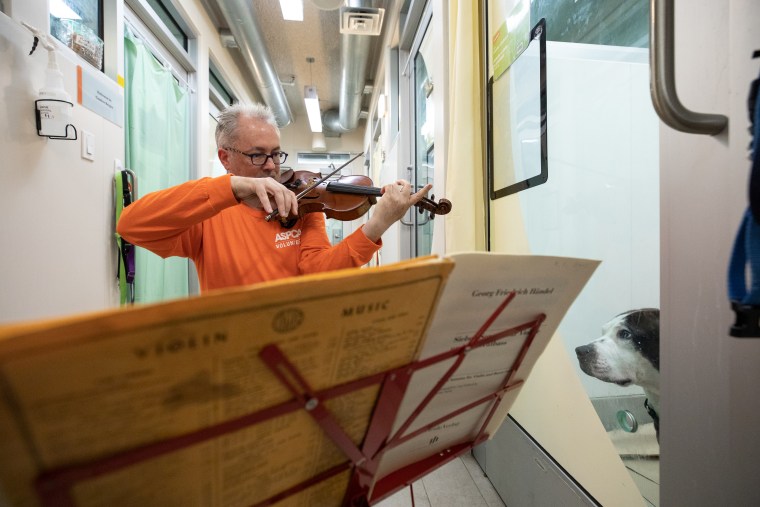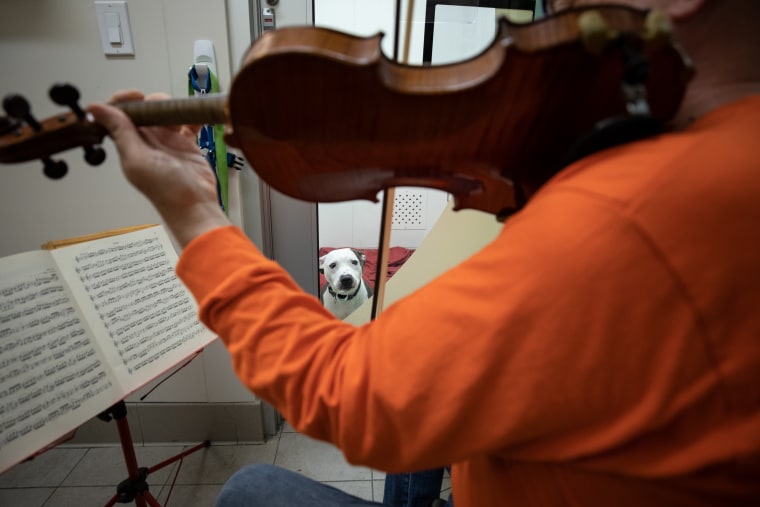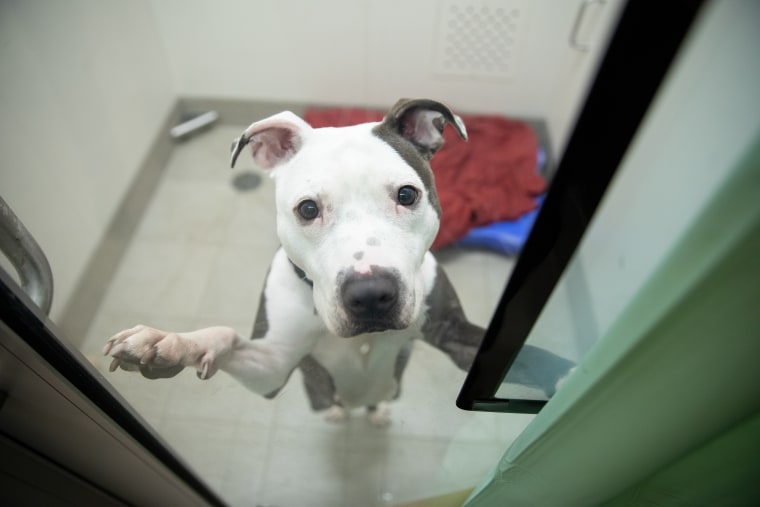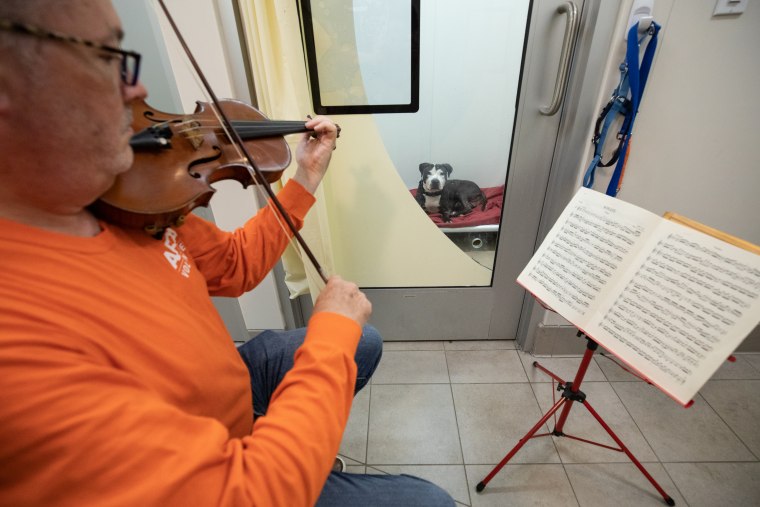For 30 years, professional violinist Martin Agee has performed in some of the world’s most renowned music venues, from Carnegie Hall to the Sydney Opera House. But two years ago, he landed his favorite gig: playing classical music for shelter dogs at the American Society for the Prevention of Cruelty to Animals' Adoption Center in New York City.
Every few weeks, Agee carries his violin to the shelter’s Animal Recovery Center, which houses animals coping with medical and behavioral issues stemming from cruelty and neglect. Often, dogs herald his arrival with barking, jumping and general chaos. Then he sits in a chair and begins to play soothing sonatas by classical composers like Bach, Handel and Mozart.
“The instant the bow hits the string, you get a reaction like, ‘What just happened?’ It’s stunning to see,” he told TODAY.

The music provides a bridge to relaxation. Energetic dogs settle down to listen. Shy dogs venture closer to the front of their enclosures for a better view.
“It’s an emotional experience,” Agee, 62, said. “And it has been since day one.”
The lifelong animal lover started volunteering at the ASPCA more than two years ago as a way to reconnect with pets after the death of his rescued greyhound, Melody. Her loss was difficult and “weighed heavily” on Agee for several years. After that interval, he signed on as an adoption coordinator at the New York shelter.
"What we have seen is that the storytelling program has made a world of difference for our dogs." —Kris Lindsay, senior director at the ASPCA
“I almost jokingly said to some people, ‘Well, maybe I’ll play my violin for the dogs when I’m there,’” he recalled. “Little did I realize that that would become a reality.”
Agee was intrigued by the ASCPA’s storytelling program, in which volunteers read books, magazines and other material to help socialize and calm victimized dogs as part of their rehabilitation. The staff supported the idea of Agee playing the violin to see how dogs would react to his music — which immediately proved successful.

Agee grows attached to the dogs for whom he plays. When they’re adopted, he misses them but finds it rewarding to know they’ve moved on to the next chapter in their life.
“And maybe there will be music there as well,” he said.
Playing for shelter dogs is also fulfilling from a musical perspective. Public performances under bright lights and scrutiny can be intense. Practicing at home can be challenging as Agee repeats technical passages over and over to perfect them — to the disdain of his adopted cat, Jack, who invariably leaves the room as soon as he spots the violin.
“Here (at the ASPCA) I just feel like I can come and just make music,” he said. “And I know that no matter what comes out, really, that my audience is going to in some way benefit from it. At least, that’s my hope.”

Kris Lindsay, senior director at the ASPCA, said Agee’s music has been a wonderful addition to the storytelling program.
“It’s really incredible to watch the impact his music has on the dogs and how quickly they respond,” she told TODAY.

Many dogs in the Animal Recovery Center are brought in by officers of the New York City Police Department after responding to animal cruelty complaints. Often, the dogs need immediate medical or behavioral intervention and can be very scared, Lindsay said. The ASPCA staff develops rehabilitation plans on a case-by-case basis, and the storytelling program typically plays an important role in helping the dogs recover and be ready for adoption.
“When the volunteers come to read to the dogs or to provide music, in Martin's case, they're providing much-needed socialization,” she said. “This brings the dogs an opportunity to meet new people and learn that strangers bring good things. … What we have seen is that the storytelling program has made a world of difference for our dogs.”